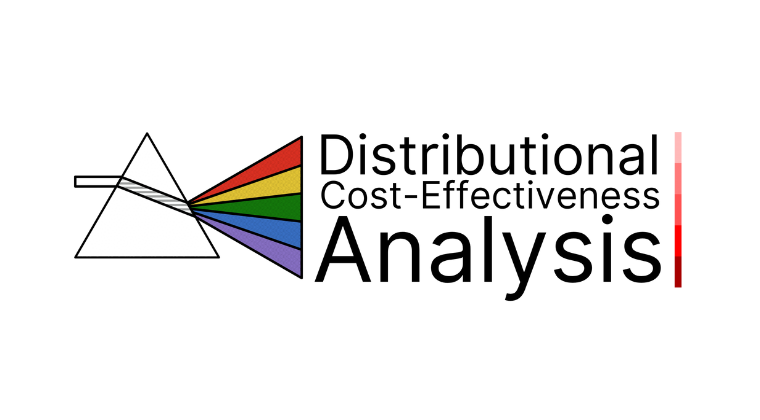Overview
This is an online course focusing on methods for analysing equity in the distribution of health programme costs and effects and trade-offs between equity and cost-effectiveness. The course is aimed at health economists and health professionals with experience of health economic evaluation, who wish to learn how to use more specialised methods for analysing distributional equity impacts and trade-offs. It is designed for participants who are familiar with standard methods of cost-effectiveness analysis, for example those who have already attended our short courses in Decision Modelling for Health Economic Evaluation. It is envisaged that participants will currently be undertaking cost-effectiveness analysis, or planning to do so in the near future.
There are two ways in which students can take this course:
- By attending the course "live". Materials are released once per week and students complete the lectures and exercises on the course platform in their own time, then attend a weekly live Q&A session with tutors and faculty via Zoom and can interact with other students, tutors and faculty via online discussion boards. Click below to find out when the next live course is scheduled for and sign up.
- By following the course “on demand”, which is available immediately. The content is the same as for the live course, but the course is in an unsupported “self-study” format with no tutor and faculty support or interaction with other students, and is aimed at those that wish to start straight away, are unable to make the live course dates, or are in a time zone that makes participating in live sessions difficult. Students gain 2 months’ access from the point of enrolment and work through the content in their own time. Click below to find out more and sign up.

Option 1
Distributional Cost-Effectiveness Analysis Online Course Live

Option 2
Distributional Cost-Effectiveness Analysis Online Course On Demand

Prerequisites

Faculty

Richard Cookson
Course Lead
Richard is Professor and Co-Director of the Equity in Health Policy Group at the Centre for Health Economics, University of York. He lead edited the course handbook and has helped pioneer “equity-informative” methods of policy analysis, including distributional cost-effectiveness analysis; health equity indicators for healthcare quality assurance; and methods for investigating public concern for reducing health inequality; and is currently developing microsimulation methods for long-term childhood policy analysis. He has co-chaired international working groups on equity, worked in the UK Prime Minister’s Delivery Unit and served on various NHS advisory committees including the National Institute for Health and Care Excellence and the NHS Advisory Committee on Resource Allocation.

Susan Griffin
Course Co-Lead
Susan is a Professor of Health Economics at the Centre for Health Economics, University of York. She edited the course handbook and works in the fields of economic evaluation and health technology assessment where her research interests include decision-analytic models, value of information analysis and the incorporation of inequality concerns into cost effectiveness analysis. Susan has contributed to technology appraisals for NICE, as a member of one of the independent academic groups undertaking evidence reviews, as a member of the Technology Appraisal Committee, and in the development of methods used at NICE.

Ole Norheim
Course Co-Lead
Ole is Professor and Director of the Bergen Centre for Ethics and Priority Setting (BCEPS) at the Department of Global Public Health and Primary Care, University of Bergen, and Adjunct Professor of Global Health and Population at Harvard University. He co-edited the course handbook and lead authored a chapter and exercise on analysing equity-efficiency trade-offs. He formerly chaired the Norwegian National Committee on Priority Setting in Health Care (2013-2014), WHO’s Consultative Group on Equity and Universal Health Coverage (2012-2014) and WHO’s Technical Advisory Group on Health Benefit Packages (2019-21). His research interests include theories of distributive justice, inequality in health, priority setting in health systems, and how to achieve Universal Health Coverage and the Sustainable Development Goal for health, and his BCEPs team carries out research and capacity building in Norway, Ethiopia, Malawi, India, Tanzania, Ghana, Nepal, and the US.

James Koh
Course Co-Lead
James is Scientific Adviser at NICE and Honorary Research Fellow at the Centre for Health Economics, University of York. He co-authored the course handbook, as lead author of the chapters and exercises on social distributions of baseline health and health opportunity costs. His research interests are in health equity and decision analytic modelling. His PhD was on incorporating health inequality concerns into cost-effectiveness analysis, and he subsequently worked at a health economics consultancy, developing decision models and researching public health evaluation and precision medicine, and then at the Centre for Health Economics in the Economic Evaluation and Global Health teams.

Chris Lübker
Tutor
Chris is a health economist at Novo Nordisk A/S. His PhD with the Equity in Health Policy group was on health inequality measurement and impacts, including applying distributional cost-effectiveness analysis to the Universal Infant Free School Meal programme. Chris has also collaborated with the Organisation for Economic Co-Operation and Development on their efforts to document between- and within-country educational inequalities in life expectancy and inequalities in cancer prevention and care as part of Europe’s Beating Cancer Plan.

Shrathinth Venkatesh
Tutor
Shrathinth joined the Centre for Health Economics at York in May 2023 from the University of Michigan, USA, where he did postdoctoral research at the hospital and school of nursing. He completed his PhD in Labor Economics at the University of Wisconsin, Milwaukee in 2021. His work has been in both education and health and he is now working on building a micro-simulation model for children in the UK.

Zaheen Umar
Tutor
Zaheen Umar is a PhD student at the Centre for Health Economics (CHE), specializing in the long-term impacts of early childhood interventions. His research is co-supervised by Richard Cookson (University of York) and David Taylor-Robinson (University of Liverpool). Zaheen’s work sits at the intersection of education and health, with a particular emphasis on life-course microsimulation based on longitudinal analysis of UK birth cohort data. His research aims to better understand how early-life support shapes future outcomes across the lifespan. Before starting his PhD, Zaheen worked as a Teaching Associate in the Economics Department at the University of Manchester, where he also completed his MSc in Economics in 2021.
All Courses
-
Pre-order available now!

Distributional Cost-Effectiveness Analysis Online Course Live 2026
CourseFive modules over five weeks focusing on methods for analysing the equity impacts of health programmes and trade-offs with cost-effectiveness
-

Distributional Cost-Effectiveness Analysis Online Course On Demand
CourseFive modules accessible on demand over a period of 2 months focusing on methods for analysing the equity impacts of health programmes and trade-offs with cost-effectiveness
